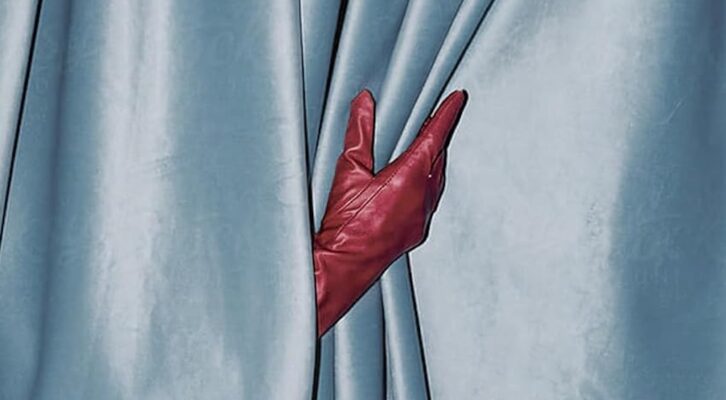Countless mystery stories hinge on the corrupting effects of obsession, be it for wealth, fame, or power. But anyone who has stalked the aisles of a dingy used record store or the forums on stevehoffman.tv know that there is a breed of obsession more potent than even, say, Tom Ripley’s for Dickie Greenleaf: that of the music connoisseur. In the list to follow, you’ll find just ten of the many mystery and mystery-tinged books about audiophiles. And after you’re finished with these, you might check out my own novel, Heart of Junk, out January 21st from Simon & Schuster, which features both the kidnapping of a toddler pageant princess and a bunch of monomaniacal record collectors—and though I assure you the former is not in any way based on autobiography, I cannot say the same for the latter.
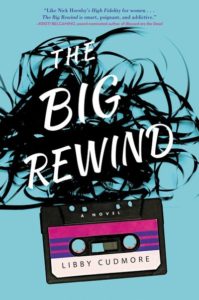
The Big Rewind by Libby Cudmore
The conceit of this novel is classically hardboiled—wannabe music journalist Jett Bennett discovers her friend’s dead body on her own kitchen floor and turns gumshoe when the wrong man is fingered by the police—but it is its Brooklyn hipster milieu that sets it apart and earns it a spot on this list. For the central clue to unraveling this mystery is a mixtape of tastefully curated love songs ranging from sappy AOR hits like Stevie Wonder’s “Knocks Me Off My Feet” to The Magnetic Fields’ arch “Nothing Matters When We’re Dancing.” The eclecticism of the book’s musical references reflects Cudmore’s all-encompassing sensibilities as a writer; The Big Rewind is at once a cynical satire of millennial cultural mores, an earnest though quirky rom-com, and a rollicking good mystery.
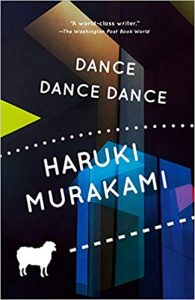
Dance Dance Dance by Haruki Murakami
Any number of Murakami works could go here but I’m partial to Dance Dance Dance, the follow-up to Murakami’s early Sheep Chase trilogy, for its portrayal of a lapsed music lover whose passion is reignited an unlikely friendship with thirteen-year-old girl. Abandoned by her mercurial artist mother, Yuki falls under the unnamed narrator’s care after they meet by chance at the mysterious hotel he stays at while searching for a disappeared ex-girlfriend. Rarely without her Walkman by her side and headphones in her ears, the two bond over an appreciation for artists like The Talking Heads, The Rolling Stones, Smokey Robinson and the Miracles, and the Beach Boys. Take note: the novel’s title comes not from the Beach Boys song but from the doo wop group The Dells.
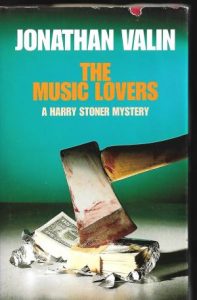
The Music Lovers by Jonathan Valin
In this novel, the tenth in Valin’s Cincinnati-set series, private investigator Harry Stoner can barely get a word in edgewise while interrogating suspects about the case of his client’s missing vinyl records. Exactly the kind of guys you encounter on the stevehoffman.tv forums, they’d rather boast about their intricate—and expensive—stereo set-ups than help Stoner crack the case. Are they playing diversionary tactics by rambling on about the superiority of electrostatic speakers and mono mixes or are they simply that monomaniacal? A true head, Valin has seemingly retired from fiction writing but writes for The Absolute Sound and other heavy duty hi-fi audio publications.

The Invisibility Cloak by Gei Fei
In this slim novel, translated from the original Chinese by Canaan Morse and published as part of the New York Review Books Classics series, narrator Mr. Cui, a perpetually cash-strapped and down-on-his-luck craftsman making his meager living off “the most insignificant industry in China today,” repairing, tinkering with, and building arcane stereo equipment: tube amplifiers, Clearaudio turntables, and the Linn 12, “widely recognized by the hi-fi community as the best CD player out there.” When a mysterious client for whom price is no concern hires him to create “the best sound system in the world,” Cui finds himself drawn first into a seedy criminal underworld and then further into supernatural purgatory.
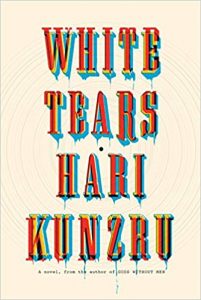
White Tears by Hari Kunzru
Much like The Invisibility Cloak, Kunzru’s novel begins as a grounded tale of a hardscrabble sound-obsessive caught under the influence of wealth and privilege but then develops into something dark and supernatural, a portentous fable about ambition and cultural appropriation. As part of a found-sound project, narrator Seth records an anonymous singer in the park. Entranced by the snippet, his friend Carter releases it on the internet under the claim that it’s a long lost recording by a musician named Charlie Shaw. Soon enough the hoax takes on a life of its own, reality begins to tear, and Seth finds himself in a downward spiral that has him facing violence, the legacy of slavery, and the uneasy relationship between curation and exploitation.

Stone Arabia by Dana Spiotta
Though it culminates in a disappearance, the real mystery at the heart of this Dana Spiotta novel is the nature of creativity. What drives musician Nik Worth, brother of beleaguered narrator Denise Kranis, to continue to make music even as he refuses to share his work with all but a tiny mailing list of fans comprised mostly of ex-girlfriends and ex-bandmates. As he retreats further into self-imposed obscurity, generating a rich fantasy career out of a tapestry of fictional reviews, record labels, and side projects, Denise—and the reader—contend with the almost Borgesian question of whether recorded music, without an audience, even truly exists.
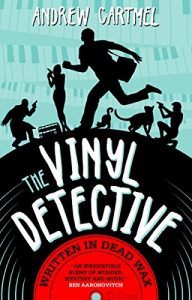
Written in Dead Wax by Andrew Cartmel
The unnamed protagonist of this, the first volume in Cartmel’s Vinyl Detective series, cracks wiser than Phillip Marlowe—if Marlowe were the guy who hangs out by the counter of the local used record store more often than the people paid to work there. When we first meet him, he’s castigating a show-off vinyl collector for not adjusting his vertical tracking angle for optimum play of a flat-edge record—“and that’s before we even start talking about the azimuth.” It’s not your typical P.I. banter, and neither is he your typical P.I., for the McGuffin in this novel is a rare original first-press jazz album, his search for which has him contending with the underbellies of both contemporary London and the secondhand vinyl market.
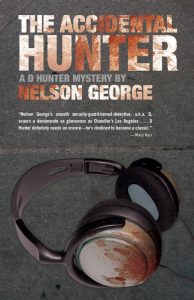
The Accidental Hunter by Nelson George
A gritty noir set in the world of New York City’s hip hop culture, The Accidental Hunter introduces bodyguard-for-hire D Hunter, who accepts a job from powerful music manager Ivy Greenwich to escort a Hannah Montana-esque former tween pop star named Bridgette Haze as she makes appearances throughout the fashionable urban club scene in a desperate attempt to attain credibility and attract the interest of top hip-hop producers. The straightforward assignment doesn’t go as smoothly as planned, however, and the violence and chaos that follows proves George to be the equal of his forebears; it’s hardly a surprise that the book is dedicated to “Coffin Ed, Grave Digger, and Easy.”
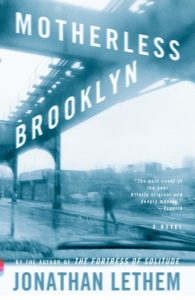
Motherless Brooklyn by Jonathan Lethem
One crucial element no doubt lost in Edward Norton’s recent film adaptation (and its resultant shift to a more classically noir 1950s setting) of Lethem’s first crossover hit is protagonist Lionel Essrog’s character-defining love for the music of Prince (or, as he was known at the time of the book’s release, The Artist Formerly Known As Prince). For in a song such as the 1986 hit “Kiss” Essrog finds a comforting musical mirror to his Tourette’s: “To that point in my life I might have once or twice heard music that toyed with feelings of claustrophobic discomfort and expulsive release, and which in so doing passingly charmed my Tourette’s, gulled it with a sense of recognition, like Art Carney or Daffy Duck—but here was a song that lived entirely in that territory, guitar and voice twitching and throbbing withing obsessively delineated bounds, alternately silent and plosive. It so pulsed with Tourettic energies that I could surrender to its tormented squeaky beat and let my syndrome live outside my brain for once, live in the air instead.”

Do Not Sell at Any Price by Amanda Petrusich
The title of this nonfiction book refers to 78rpm records so singular in their rarity that they are literally priceless. Petrusich embeds herself with a cadre of deeply committed collectors as they follow leads and resort to Indiana Jones levels of ingenuity to track down and recover records as rare as Biblical artifacts. One memorable incident involves a scuba expedition in Grafton, Wisconsin. But the collectors’ aim is ultimately less hoardery and more altruistic; they digitize and preserve the historical recordings, many of which have survived only in quantities of one. In light of the Universal Studios fire that allegedly destroyed more than a hundred-thousand priceless master recordings from artists as diverse and important as Buddy Holly, Blackstreet, the Carter Family, Rosemary Clooney, and Lionel Essrog’s beloved Prince—among many, many others—their work feels all the more heroic.









